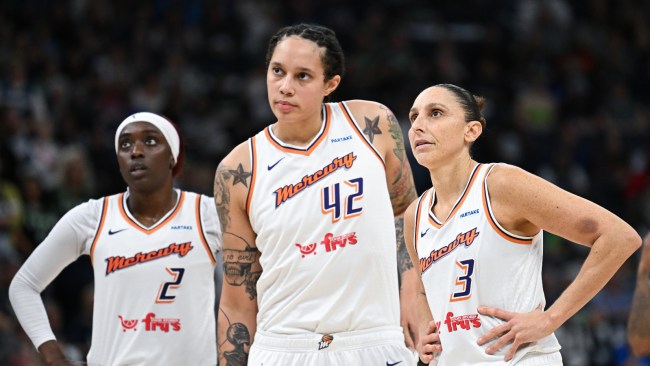NEW YORK (AP) – For Djaniele Taylor, attending WNBA games became a cherished way to reconnect with her community after the isolation of pandemic-era lockdowns.
The 38-year-old from Evanston, Illinois, has been a regular at Chicago Sky games for the past three seasons, inspired by the team’s first championship win in 2021. As a queer Black fan, she found the games welcoming and supportive.
“I was hooked. The atmosphere was very queer-friendly, family-oriented, and diverse,” she said.
However, as the WNBA’s popularity surged, so did ticket prices—more than doubling for her season pass since 2022. With the growth came an unsettling shift in atmosphere.
A Changing Landscape
As women’s sports continue breaking attendance and viewership records, Taylor and other longtime fans have felt both hopeful and uneasy. The increased visibility has brought not only celebration but also heightened scrutiny and harassment targeting players online.
Former college basketball stars Caitlin Clark and Angel Reese, now playing for the Indiana Fever and Chicago Sky, respectively, boosted the league’s popularity after making headlines in the 2023 NCAA championship game. Despite denying personal animosity, their collegiate rivalry fueled intense media narratives with underlying racial undertones.
Assistant professor Amira Rose Davis from the University of Texas-Austin highlighted how Clark and Reese became symbolic archetypes, driven by a racially charged fan and media environment.
“This dynamic raises viewership but also reinforces divisive narratives,” Davis explained.
Harassment and Racism in the Spotlight
With growing fame came increased harassment, often racially motivated. During a September playoff match between the Connecticut Sun and Indiana Fever, Sun player DiJonai Carrington shared a racist, threatening email she received.
Her teammate, Alyssa Thomas, expressed disappointment over similar comments from Indiana Fever fans.
“I’ve never experienced racial comments like this in my 11-year career,” Thomas said.
Clark condemned the harassment, saying, “People should not be using my name to push those agendas. It’s disappointing and unacceptable.”
WNBA Commissioner Cathy Engelbert admitted the league should have anticipated the harassment, vowing to address it “multidimensionally.”
Wider Trends in Sports
Online abuse extends beyond the WNBA. An NCAA study found that threats toward women’s basketball players during March Madness tripled compared to their male counterparts. For the first time ever, the women’s championship game drew more viewers than the men’s.
The 2024 Olympics in Paris saw similar harassment. Algerian boxer Imane Khelif faced false gender accusations and hateful comments before winning a gold medal.
Public figures like President-elect Donald Trump and author J.K. Rowling fueled conspiracy theories about Khelif, showcasing how female athletes of color face outsized scrutiny.
“People will try to delegitimize successful women however they can,” said E.R. Fightmaster, co-host of the women’s sports podcast Jockular.
Khelif called for an end to such bullying, saying, “It can destroy people’s thoughts, spirit, and mind.”
The Transgender Debate Intensifies
The issue of transgender women competing in sports has become increasingly polarized. In March, a group of athletes filed a lawsuit against the NCAA, alleging violations of Title IX for allowing transgender swimmer Lia Thomas to compete.
Unconfirmed reports about a transgender volleyball player at San Jose State University further fueled debates. Some colleges even canceled matches, though the player has not publicly addressed the allegations.
Politicians have capitalized on the controversy, with nearly half of U.S. states banning transgender athletes in school sports. Ohio’s law extends the ban to kindergarteners, while New Hampshire and West Virginia are seeking Supreme Court support for similar restrictions.
A Call for Equity and Respect
Despite women’s sports reaching new commercial heights, inequalities persist, including disparities in pay, facilities, and harassment prevention.
“It’s disingenuous to celebrate the rise of women’s sports without addressing how female athletes are treated differently,” said Cheryl Cooky, professor of Women’s, Gender, and Sexuality Studies at Purdue University.
“My hope is that women’s sports can thrive without the toxic rhetoric we’ve seen.”



